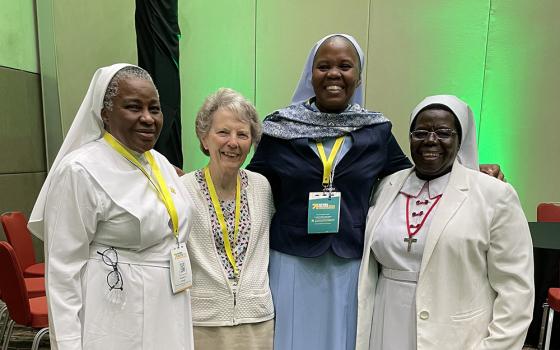
(Unsplash/Jed Villejo)
I have just celebrated my 58th birthday and yet I recall as if it was only yesterday when I was 12 years or thereabout! I began attending early Mass on Sundays at 7:30 a.m. and after, I would remain behind to practice with the choir for the next Sunday's Mass animation. This continued for about six months without my mother's awareness. One Sunday, I missed choir practice and headed straight home. She questioned what happened because I was quite early, unlike other Sundays. After a lengthy explanation, I was warned and stopped from attending choir rehearsal. I was to cease being a member completely. Devastated as I was, many queries lingered in my mind. Why is mother against my singing? They said, "Singing is praying twice." Does she not trust me? I thought on and on without arriving at an answer.
At this point, I swore to myself that I would find out the reason why it was wrong for me to sing and praise God. Deeply and vastly, I searched, and finally, my mother said, "I do not want you to join the choir because the members marry among themselves." Ah! It was a surprise indeed to me that even if I lived 100 years, I would not have thought of anything like it. It had not crossed my mind to look for a man among the choir gentlemen. Wonders will never cease, I thought.
Nevertheless, I obeyed my mother, and after that, I avoided anything to do with the choir as a group, which bothered me a lot due to her observation. Unfortunately, my mother's warning turned out to be true in our choir. Today, I understand why such should happen: familiarity with those you socialize with daily, including schooling or working together and a worklike situation can sometimes develop into close relationships.
Overcoming that negative seed sowed by my authority figure had serious repercussions in my youthful stage, to the extent that in my religious formation, I was not interested in singing, key as it may be for worship. This is despite my strong second voice (alto). Today, I firmly believe, since this second voice is natural, that if I had the formative years of training, I would have been a wonderful alto singer. And how I miss this!
By no means do I blame my mother because that was her wisdom then. She had to protect her firstborn daughter by all means in order to set the pace for the rest of the siblings. However, today, I keep contemplating how many youths' talents are buried inside, never to see the light of day because of adults down-talking the young people without providing explanations. How can youth communicate effectively with adults? And when will adults begin to take each youth as an individual?
My 19-year-old nephew, an orphan, has been difficult to understand. Needy as he may be, he has left us all in the family feeling helpless because no amount of direction or guidance will make him agree to pursue a course of study or training. On the contrary, he is obsessed with a desire for a motorcycle even though he does not possess a driving license. When I compare the meager payment obtained from ferrying people on a motorcycle to the potential for a long-lasting career after acquiring skills, I am totally left without wisdom. I conclude that the youth imagine that they know what they want, only to realize later, when they have wasted time and other resources, that they do not know a thing.
Advertisement
This youthful stage is a period of identity crises. The young person lacks self-awareness, something that I believe often goes unnoticed by adults. Many adults assume they know what is good for the youth without giving dialogue a chance. This observation is not reserved for lay young people; it also applies to young postulants, novices and seminarians. There is much that we can do as sisters to facilitate self-awareness in the youth.
My nephew abandoned six months of boarding school fees in 2017, in preference to a less expensive day school, despite its more distracting study environment. Losing my hard-earned cash did not stop me from assisting him again and again. This I will continue to do until he is of age and able to put food on the table independently. By helping the youth, we can teach them forgiveness, tolerance and the unconditional love of God.
The prophet reminds us: "Do you not know… though young men faint and grow weary, and youths stagger and fall …" (Isaiah 40:30).
Despite their robust energy, youth can get weary and miss out unless they place their hope in the Everlasting and all-powerful God. In other words, young people will require counting on God and not on their own strength or understanding. Nor should they put their trust only in their talents or mentors. The youth need to discern their lives and strive for self-awareness but more so to put their trust in God. Young people just want to understand themselves as well as understand the adults. We can help them, by listening and with God's help we will help them "soar on eagles' wings" (Isaiah 40:31).








